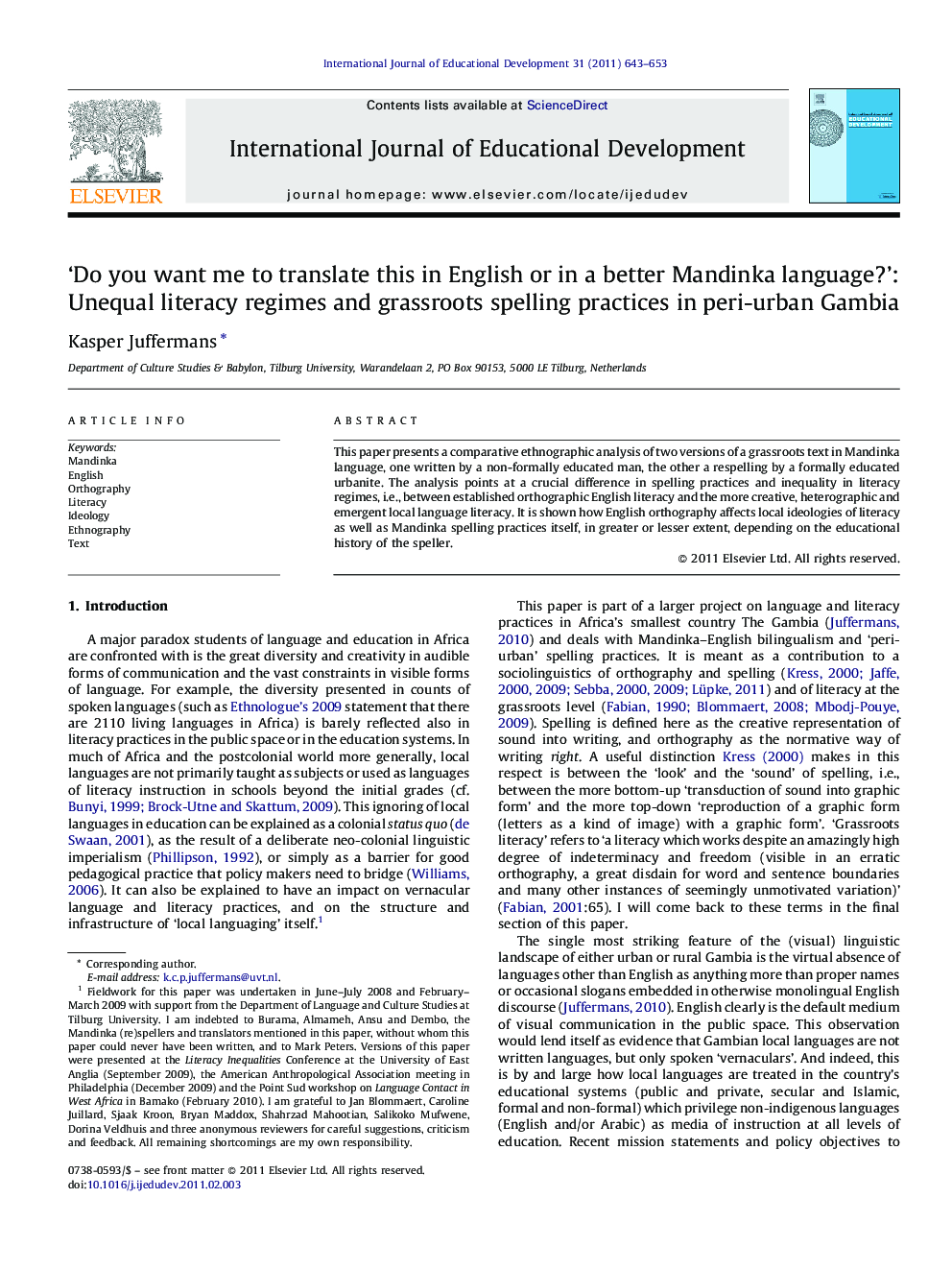| Article ID | Journal | Published Year | Pages | File Type |
|---|---|---|---|---|
| 356369 | International Journal of Educational Development | 2011 | 11 Pages |
This paper presents a comparative ethnographic analysis of two versions of a grassroots text in Mandinka language, one written by a non-formally educated man, the other a respelling by a formally educated urbanite. The analysis points at a crucial difference in spelling practices and inequality in literacy regimes, i.e., between established orthographic English literacy and the more creative, heterographic and emergent local language literacy. It is shown how English orthography affects local ideologies of literacy as well as Mandinka spelling practices itself, in greater or lesser extent, depending on the educational history of the speller.
Research highlights► Local language literacy is marginally practiced in Anglographic Gambia, West Africa. ► Comparative ethnographic text analysis shows inequalities in grassroots literacy. ► English literacy is orthographic; emergent local language literacy is heterographic. ► English orthography affects local language ideologies and spelling practices. ► Spelling Gambian Mandinka is always spelling in the presence of English.
